
Unlike most studies of modern Chinese education that focus exclusively on the post-1949 era, Education, Culture, and Identity in Twentieth-Century China represents a deliberate attempt to break through the 1949 barrier and embrace the entire century. Culture emerges in this study as a deeper level factor that underlay the development of education in each period and shaped certain recurrent patterns, while identity involves a search for individual and collective meaning that went on under different regimes.
The product of a genuinely multidisciplinary effort to promote cross-fertilization among an international team of scholars in a wide range of disciplines, Education, Culture, and Identity in Twentieth-Century China will interest students and scholars of modern China, comparative and international education, educational policy, and international relations. It will also appeal to policy makers and professionals associated with international organizations.
Glen Peterson is Associate Professor of History, University of British Columbia. Ruth Hayhoe is Director, Hong Kong Institute of Education. Yongling Lu is a graduate student in the History Department, Stanford University.
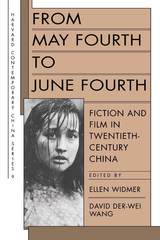
What do the Chinese literature and film inspired by the Cultural Revolution (1966–1976) have in common with the Chinese literature and film of the May Fourth movement (1918–1930)? This new book demonstrates that these two periods of the highest literary and cinematic creativity in twentieth-century China share several aims: to liberate these narrative arts from previous aesthetic orthodoxies, to draw on foreign sources for inspiration, and to free individuals from social conformity.
Although these consistencies seem readily apparent, with a sharper focus the distinguished contributors to this volume reveal that in many ways discontinuity, not continuity, prevails. Their analysis illuminates the powerful meeting place of language, imagery, and narrative with politics, history, and ideology in twentieth-century China.
Drawing on a wide range of methodologies, from formal analysis to feminist criticism, from deconstruction to cultural critique, the authors demonstrate that the scholarship of modern Chinese literature and film has become integral to contemporary critical discourse. They respond to Eurocentric theories, but their ultimate concern is literature and film in China’s unique historical context. The volume illustrates three general issues preoccupying this century’s scholars: the conflict of the rural search for roots and the native soil movement versus the new strains of urban exoticism; the diacritics of voice, narrative mode, and intertextuality; and the reintroduction of issues surrounding gender and subjectivity.
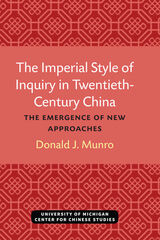
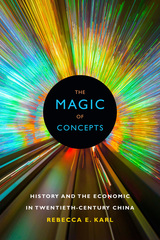
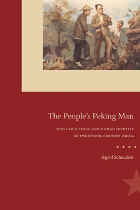
The People’s Peking Man is a skilled social history of twentieth-century Chinese paleoanthropology and a compelling cultural—and at times comparative—history of assumptions and debates about what it means to be human. By focusing on issues that push against the boundaries of science and politics, The People’s Peking Man offers an innovative approach to modern Chinese history and the history of science.
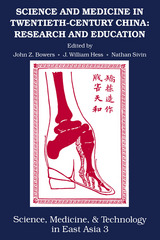
READERS
Browse our collection.
PUBLISHERS
See BiblioVault's publisher services.
STUDENT SERVICES
Files for college accessibility offices.
UChicago Accessibility Resources
home | accessibility | search | about | contact us
BiblioVault ® 2001 - 2024
The University of Chicago Press









